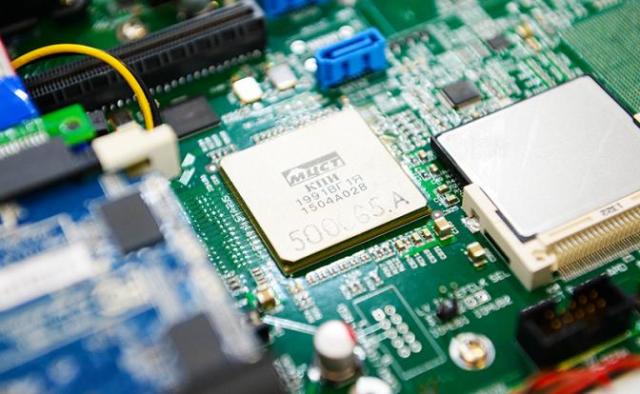Britain will isolate the Russian Federation from IT technologies, but it will not work out
Another wave of anti—Russian sanctions from the UK has covered domestic processor developers - the list published on May 4 includes the company MCST JSC, which produces Elbrus processors, as well as Baikal Electronics JSC, which produces Baikal processors. Their assets were frozen, the Kingdom's enterprises were banned from providing them with technological and financial services. Among the prohibitive measures is a restriction on the use of the British ARM architecture. Now they have to use counterfeit or look for a replacement.
The prohibition of using ARM is very sensitive for Baikal Electronics, which operates under license with this architecture. Now, they may have to use the open ones — RISC-V, MIPS or VLIW.
Previously, manufacturers of Russian processors, including MCST, Baikal Electronics, STC Modul, STC Elvis, have already been subject to US sanctions, according to which foreign partners are required to coordinate with the Bureau of Industry and Security of the US Department of Commerce the sale of their own technological products to Russian enterprises.
As German Klimenko, chairman of the Council of the Digital Economy Development Fund, explains, it was a stretch to call the Elbrus and Baikal processors Russian.
— A rather peculiar picture has developed here, quite common in the production of equipment: we take parts in China, make something out of them at a factory in China, take them to Russia, and then pass it off as domestic products — as a result of the import substitution policy. The state, to put it mildly, made a mistake in this direction. The sphere of high technologies is still different from the agricultural one, where imported seed material is used to grow some products. There you can really refuse to import, even if you lose in quantity. We will grow fewer products, but it will definitely be our own. This cannot be achieved in IT.
"SP": — So, wishful thinking was given out as real?
— Something like that. When we were sanctioned a few years ago, officials needed to be told that we had something of our own. Now we got what we got. Not every high-ranking official will risk presenting the real picture to the first person. It turns out that before we misled the public. Maybe it's not too appropriate to talk about it now, but it's still going to have to be said about it sometime.
"SP": — Are there any ways out of the situation?
— I don't see any other way to turn to China for help. The Celestial Empire is still considered our ally, strategic partner.
Three years ago, when Huawei was sanctioned, they came to Russia and offered the cooperation they needed. They were negotiating with the developer of "Elbrus". They offered their servers. But our refused because of a sudden pride — they say, we have our own. Their servers may not be as powerful, but they are built on their own technologies that serve several centers with a total number of several thousand people.
Now, I must say, Huawei is not eager to cooperate with us, for fear of falling under secondary sanctions. So, one should not underestimate the partner's capabilities and overestimate one's own.
"SP": — But do they produce something here?
— They do it on old components, it's not much, but it's quite enough for defense needs. In the situation with processors, we miscalculated.
I think it was worth focusing primarily on where we are strong — on programming. For example, now Kaspersky is threatened with sanctions, all kinds of punishments, but everyone understands that in practice it will be extremely difficult to do this, because a huge layer of computers in the world are tied to it.
"SP": — What fate can Elbrus and Baikal expect?
— Perhaps everything will be according to the old tradition — they will pretend that they are doing something. Here you can recall the fate of the once widely advertised national search engine Sputnik and the browser of the same name. When a lot of money was poured in, they talked a lot about him, but then he died quietly.
"SP": — Will the breakup of cooperation with our companies be sensitive for foreign partners?
— With the existing volumes of their economy, our market is not too significant.
However, according to Oleg Krivokurtsev, Director of Development at Promobot (engaged in the development of robotics), things are not so sad with the development of processors.
— Of course, cooperation with the British side was important for MCST and Baikal Electonics, and the sanctions imposed will create problems for them. But I know for sure that these projects will not be curtailed. The companies-creators have developed a "plan B" in case of a similar situation. Of course, now the deadlines for the implementation of projects will be shifted somewhat, but I assure you, they will not be abandoned.
"SP": — How much will the deadlines shift?
— For about a year. I think after this time they will present the results of their labors to the public.
"SP": — Is the topic of technological sovereignty now being actively discussed in the press and the expert community? How possible is such an autarky in the field of high technology?
— Absolutely impossible. Moreover, no country can provide it for itself. High technologies are developing so fast because there is an exchange of ideas, skills, and knowledge of specialists from all over the world. It's not just communication, but also the exchange of scientific schools, approaches. Of course, we will learn from experience, reproduce something and create our own. But Russia will definitely not fence itself off from the world in this area, and it is definitely impossible to isolate us.
Evgeny Bersenev






